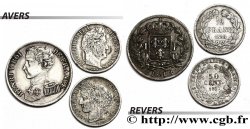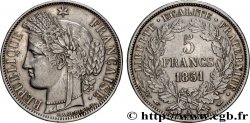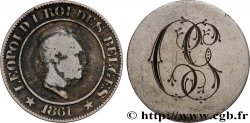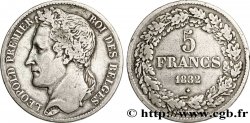v42_0753 - II REPUBLIC Médaille SN 38, Rapport sur l’envahissement de l’Assemblée nationale le 15 mai 1848
MONNAIES 42 (2010)
Starting price : 100.00 €
Estimate : 200.00 €
Realised price : 100.00 €
Starting price : 100.00 €
Estimate : 200.00 €
Realised price : 100.00 €
Type : Médaille SN 38, Rapport sur l’envahissement de l’Assemblée nationale le 15 mai 1848
Date: 1848
Quantity minted : ---
Metal : tin
Diameter : 38,21 mm
Orientation dies : 12 h.
Weight : 15,62 g.
Edge : lisse
Rarity : R1
Coments on the condition:
Usure régulière sur les reliefs mais la médaille conserve une jolie et agréable lumière
Catalogue references :
Obverse
Obverse legend : ASSEMBLÉE NATIONALE/ SEANCE DE NUIT DU 25 AU 26 AOUT 1848.
Obverse description : Au centre, en six lignes : RAPPORT/ DE LA COMMISSION/ D’ENQUETE SUR/ L’ENVAHISSEMENT/ DE L’ASSEMBLÉE/ LE 15 MAI 1848 ; en-dessous niveau avec un bonnet au centre.
Reverse
Reverse legend : DANS UN RUBAN RÉPUBLIQUE FRANÇAISE.
Reverse description : Entre deux rameaux, en neuf lignes : L’ASSEMBLÉE/ NATIONALE ACORDE/ L’AUTORISATION DE/ POURSUIVRE LES/ CITOYENS/ LOUIS BLANC/ ET CAUSSIDIÈRE/ REPRÉSENTANTS/ DU PEUPLE.








 Report a mistake
Report a mistake Print the page
Print the page Share my selection
Share my selection Ask a question
Ask a question Consign / sell
Consign / sell
 Full data
Full data













